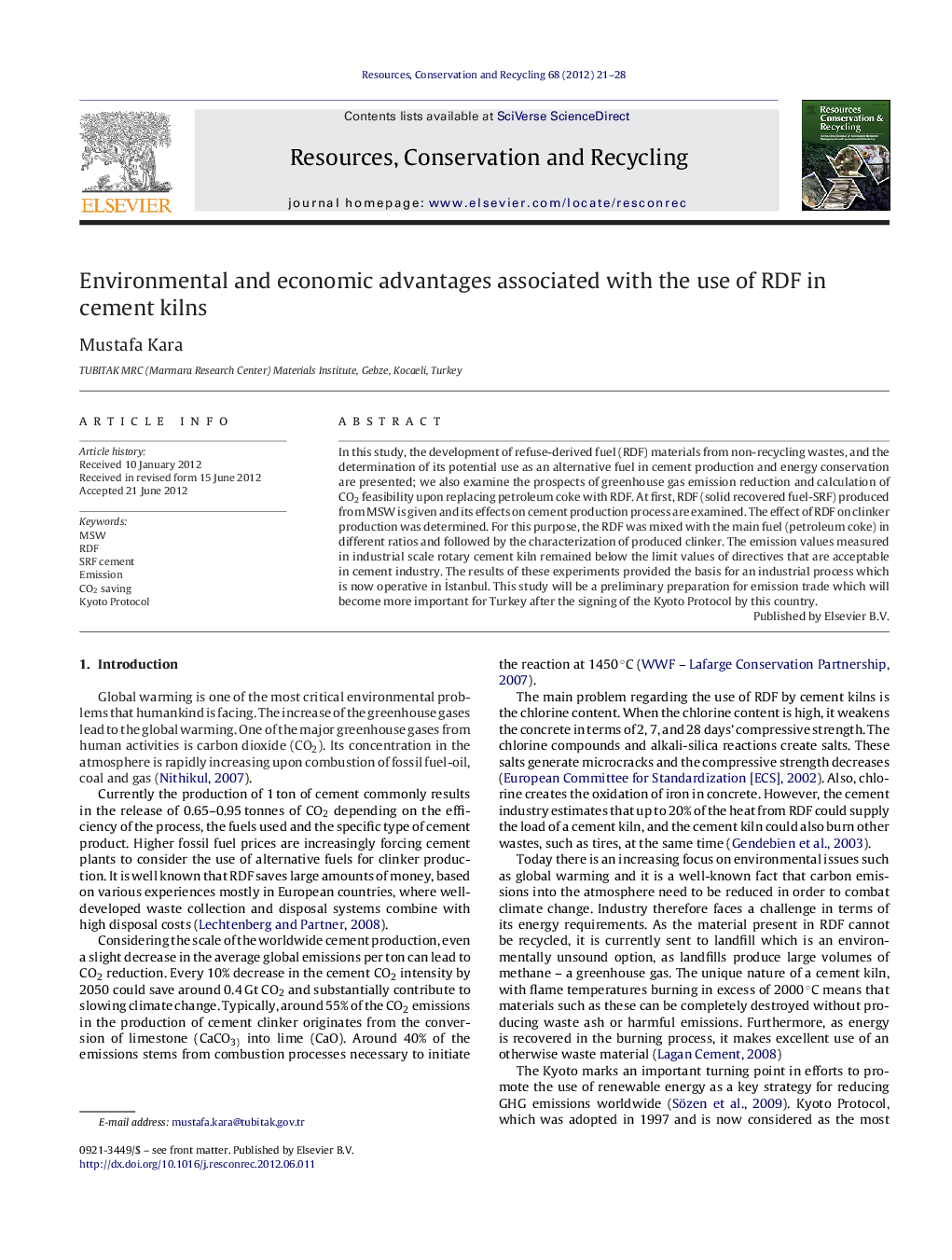| Article ID | Journal | Published Year | Pages | File Type |
|---|---|---|---|---|
| 1063238 | Resources, Conservation and Recycling | 2012 | 8 Pages |
In this study, the development of refuse-derived fuel (RDF) materials from non-recycling wastes, and the determination of its potential use as an alternative fuel in cement production and energy conservation are presented; we also examine the prospects of greenhouse gas emission reduction and calculation of CO2 feasibility upon replacing petroleum coke with RDF. At first, RDF (solid recovered fuel-SRF) produced from MSW is given and its effects on cement production process are examined. The effect of RDF on clinker production was determined. For this purpose, the RDF was mixed with the main fuel (petroleum coke) in different ratios and followed by the characterization of produced clinker. The emission values measured in industrial scale rotary cement kiln remained below the limit values of directives that are acceptable in cement industry. The results of these experiments provided the basis for an industrial process which is now operative in İstanbul. This study will be a preliminary preparation for emission trade which will become more important for Turkey after the signing of the Kyoto Protocol by this country.
Graphical abstractFigure optionsDownload full-size imageDownload as PowerPoint slideHighlights► We examine greenhouse gas emission reduction, CO2 feasibility upon replacing petroleum coke with RDF. ► Emission measurements made at industrial scale rotary cement kiln. ► It is shown that there is 9.50 USD/h CO2 emission saving in petroleum coke. ► 94 USD/h real saving will be achieved by using RDF. ► This study will be a preliminary preparation for emission trade for Turkey.
